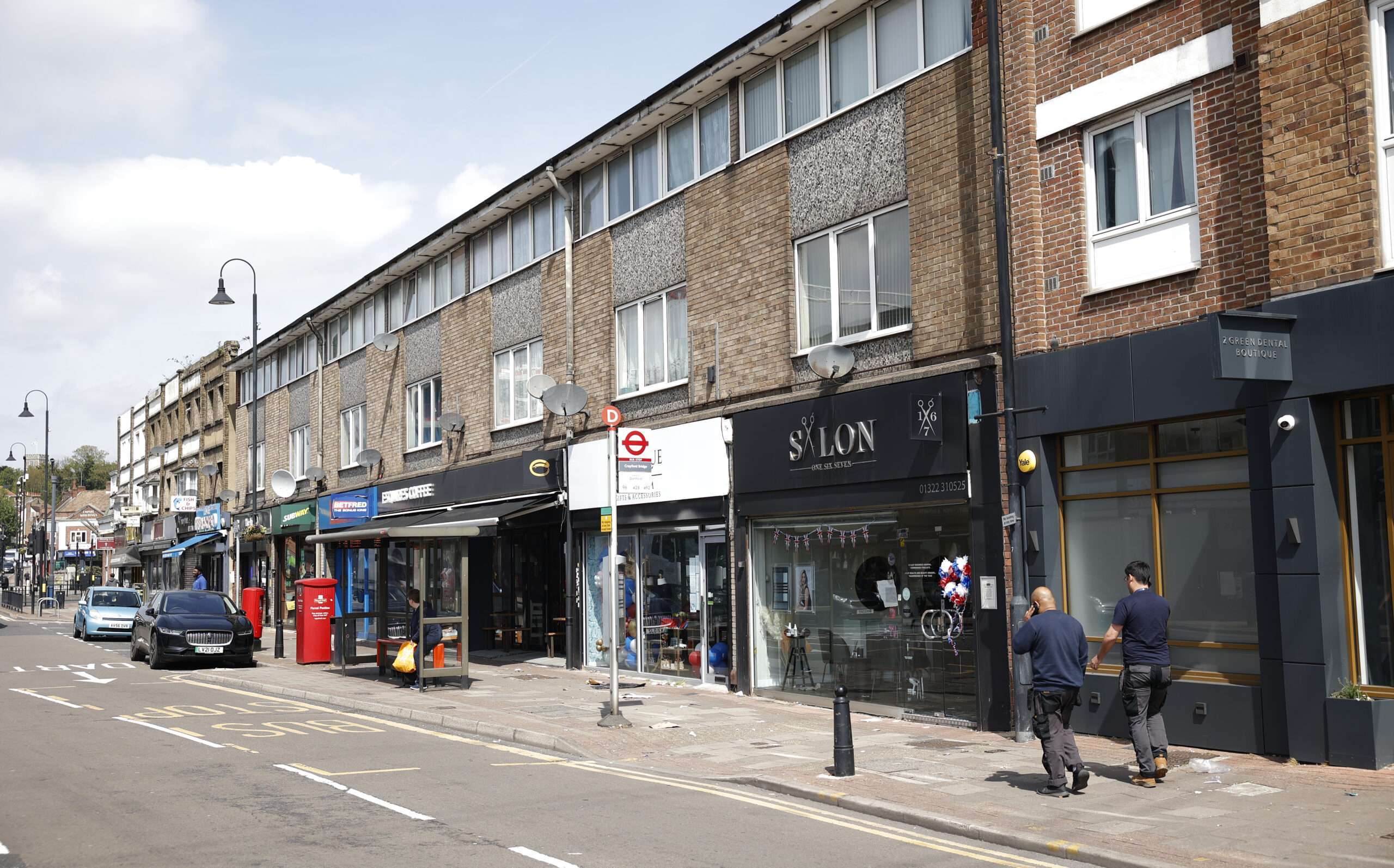Despite Bexley getting classed as a London borough in 1965, some Crayford residents maintain living on the fringe is very different to inner-city life and they feel like tourists when they travel to the centre.
Dupwe Oni, 50, has run People’s Launderette in Crayford for the past 20 years. The business owner said that Central London is such a “different ballgame” to outer areas such as Crayford that she doesn’t feel like she really lives in the city.
“When I go into London, I feel like I’m going into a big place,” she said.
“I look like a lost person when I go. We feel that we’re not Londoners, personally, that’s how I feel.”
Molly Irlem, 24, works at the Roar Music Academy in Crayford. She said when asked where she comes from, she gives a different answer depending on who she is talking with.
She added: “If anyone asked me, I’d say I’m from London, I’m sticking to my roots… it’s hard, it depends… but if upper-class people talk to me then I’m like, ‘Yeah, I’m from Kent.’”
Residents also claim they face different issues living on the edge of the capital and said it can be hard getting lumped in with Londonwide policies such as the Ultra Low Emission Zone (ULEZ) expansion.
A shop worker, who wished to remain anonymous, said while locals are grateful for the transport links available by being a London borough, lots dislike how schemes such as ULEZ are affecting residents. From August this year, people across London will have to pay £12.50 a day to drive if their vehicle is not deemed environmentally friendly enough.
They told the Local Democracy Reporting Service: “People here don’t want to be part of London because of ULEZ. They say the same thing, what’s the point in ULEZ when we’re not in London? But with certain things, they say that they are in London, like public transport, so they’re trying to benefit from that.”
Stuart Lynch, 45, owner of The Penny Farthing micro-pub in Crayford, said a lot of his customers aren’t happy about the ULEZ expansion.

The pub owner said he’s worried about how the scheme could affect local businesses: “If people have got older cars, they won’t pop to the shops, get their haircut or come to have a pint.
“They aren’t going to pay £12.50 to come and have a pint, are they? They’ll go somewhere else. It’s not ideal.”
George Best, 25, who works at The Penny Farthing, said he estimates about 70 per cent of the pub’s customers drive. Mr Best said: “They have diesel cars, they’ve had loads of protests. So it’s affecting people, definitely.”
He added: “It just seems very excessive, £12.50. I think that’s the sort of sentiment that we’re getting from everyone else as well.”
Last month, the High Court gave permission for a judicial review into the proposed ULEZ expansion. The move came after Bexley Council legally challenged the scheme in a coalition with Bromley, Hillingdon, Harrow and Surrey County councils.
Councillor Baroness O’Neill of Bexley OBE, Leader of the Council, said: “We are well aware of the strong feelings generated by the Mayor’s plan to expand the ULEZ.
“Residents gave us a mandate to fight this at the elections in May 2022 and by expressing their opposition in their responses to last year’s public consultation – the results of which the Mayor of London chose to ignore.”
The council leader said Bexley Council supported improvements to air quality but disagreed with the planned expansion given the borough’s poor public transport infrastructure and reliance on cars.
She said that the council planned to continue their legal challenge against the Mayor of London.
She added: “The Mayor’s message that it’s okay to pollute if you can afford the £12.50 a day ULEZ charge is the wrong one.
“The charge will hit many of our residents and businesses hard and it will discourage people from outside London from travelling into our borough.
“It could increase the cost of some services residents need and affect the wellbeing of those who travel into Bexley to visit family, friends or health providers.”
Speaking about ULEZ, Ms Irlem argues that the zone will affect some residents more than others and said while she would be able to drive up and down her road for free once the boundary extends, as she drives off the street she would be charged.
She added: “This area is really sporadic for being affected. So you might get a couple of families that are really badly affected and some that aren’t but lots of our people get public transport here because it’s so easy.”
Regular trains from Crayford station allow locals to get to London Bridge in just over half an hour. Several buses in the area also serve routes to Kent and other towns in Bexley such as Sidcup or Welling.
Christina Calderato, TfL’s Director of Strategy and Policy, said schemes such as ULEZ had been designed to encourage more sustainable travel choices among Londoners.
She also said that residents in outer areas of London will benefit from the Superloop, a recently announced express bus service connecting outer London town centres.
Ms Calderato said: “Our proposals for Superloop would create a game-changing new network of bus services and is a significant step in the Mayor’s commitment to improve the bus network in outer London, adding over 4million extra kilometres to bus services and complementing earlier plans to add over 1 million kilometres to the network, which will in turn support growth areas in a number of outer London locations.
“Any money received from the ULEZ is reinvested into London’s transport network.”
A Mayor of London spokesperson said that the ULEZ scheme has cut nearly half of the harmful emissions in inner London to date.
They said that nine out of ten cars in outer London are already ULEZ complaint, and that a £110m scrappage scheme is available for those requiring to update their vehicles.
They added: “The Mayor has been clear that the decision to expand the Ultra Low Emission Zone London-wide was not an easy one, but necessary to tackle toxic air pollution and the climate crisis.
“Around 4000 Londoners die prematurely each year due to air pollution, children are growing up with stunted lungs and thousands of people in our city are developing life-changing illnesses, such as cancer, lung disease, dementia and asthma.
“In Bexley up to an estimated 162 people lose their lives prematurely each year due to toxic air pollution.”






